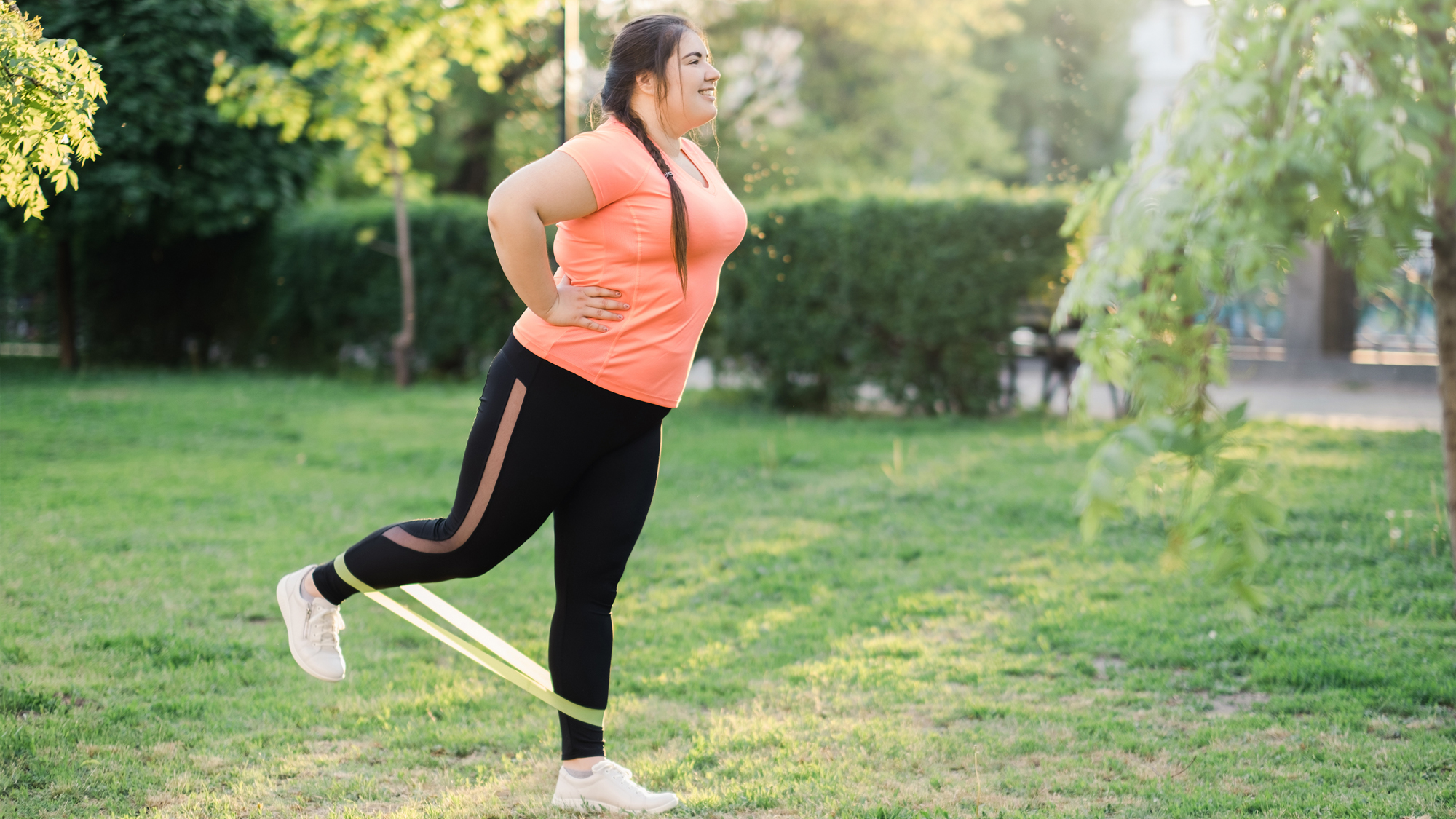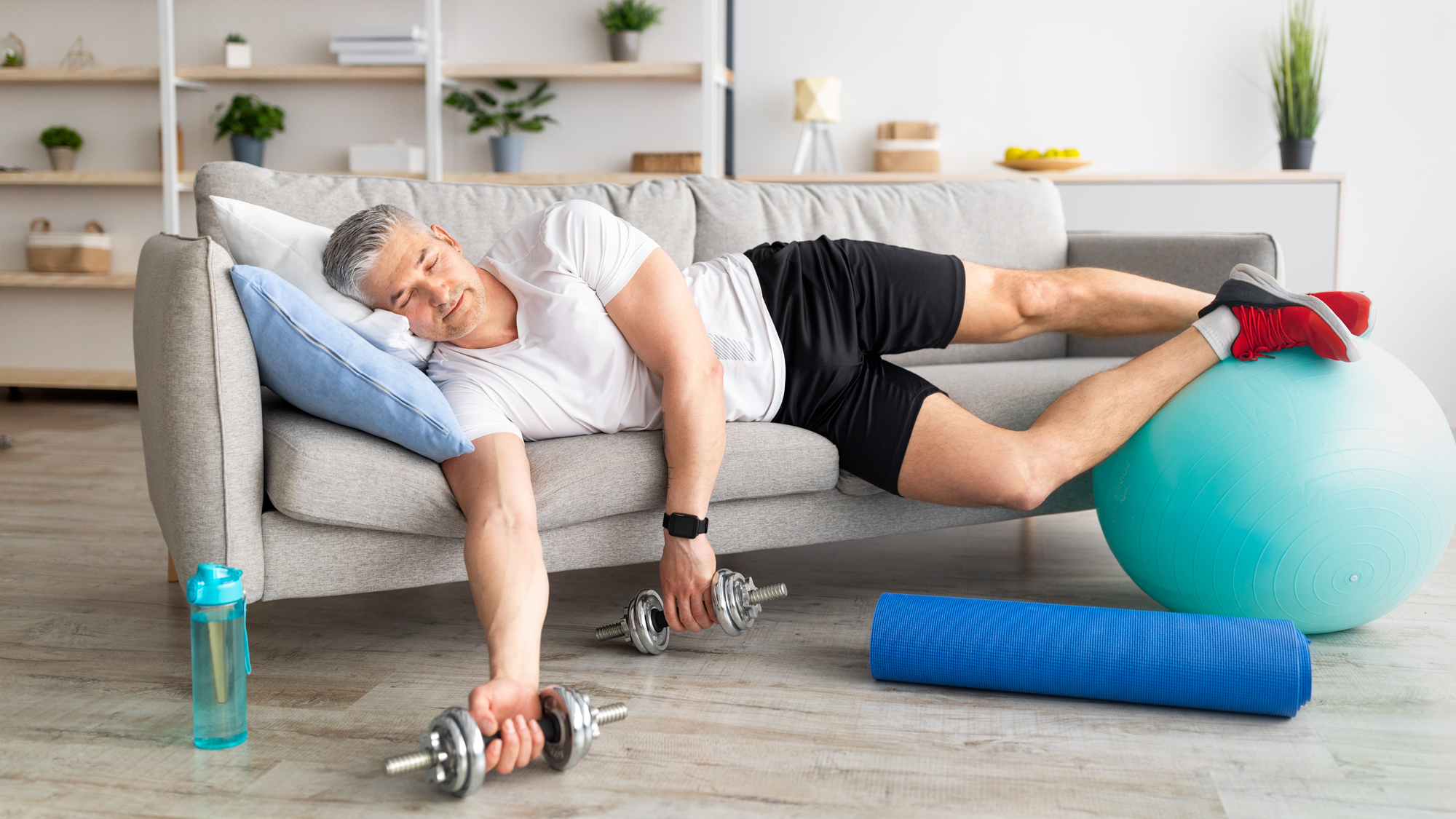Here's the best time of day to exercise to lose weight and keep it off
Sticking to a consistent schedule could be the secret to sustainable weight loss


If you want to lose weight, exercise combined with a healthy, balanced diet is the best way to drop pounds. But, just as the food we eat affects our bodies, so does when we choose to work out.
You want to maximize the results you get from the best exercises for weight loss, so it's important to find the optimal time of day for your training. Thankfully, new research might have the answer.
According to the study published in the Journal of Physical Activity and Health, the key to sustaining weight loss might not lie in the time of day but the consistency of your training.
The researchers analyzed the exercise habits of 709 people listed on the National Weight Control Registry. This ongoing research project includes over 10,000 people who have lost at least 30lbs and kept it off for a year or more.
The study's authors found that exercising at a consistent time of day increased the amount of moderate to vigorous physical activity, which plays a vital role in sustaining weight loss.
Interestingly, motivation and routine may be at the root of this link. The team discovered that people who consistently exercised in the morning were more likely to maintain a regular workout schedule. This, in turn, helps maintain your previous weight loss.

For many of us, it's easier to fit in morning exercise before the day really gets started. Setting your alarm earlier, training, then starting on your day is often smoother than trying to work out in the evening.
Start your week with achievable workout ideas, health tips and wellbeing advice in your inbox.
By the end of the day, you're more likely to be tired after long hours at work or school, and it might be tempting to skip your workout in favor of dinner and chilling out.
However, while morning exercise might be ideal for sustaining weight loss, working out the best time of day depends on your goals. In the past, researchers found training in the evening helps you work harder and reduces your risk of heart disease.
Meanwhile, another group of scientists discovered that exercising two hours before bed improves your sleep. They found moderate to intense training helps you fall asleep faster, sleep for longer, and spend more time in restful deep sleep.
The latest research points to consistent morning exercise for sustainable weight loss, but don't worry if you can't fit that into your schedule. After all, finding time for any physical activity is better than none.
If you do want to fit more into the early hours but struggle to get up, consider adding one of the best sunrise alarms clocks to your bedside table. These mimic sunlight to make waking up a more natural and pleasant experience.

James is a London-based journalist and Fitness Editor at Fit&Well. He has over five years experience in fitness tech, including time spent as the Buyer’s Guide Editor and Staff Writer at technology publication MakeUseOf. In 2014 he was diagnosed with a chronic health condition, which spurred his interest in health, fitness, and lifestyle management.
In the years since, he has become a devoted meditator, experimented with workout styles and exercises, and used various gadgets to monitor his health. In recent times, James has been absorbed by the intersection between mental health, fitness, sustainability, and environmentalism. When not concerning himself with health and technology, James can be found excitedly checking out each week’s New Music Friday releases.